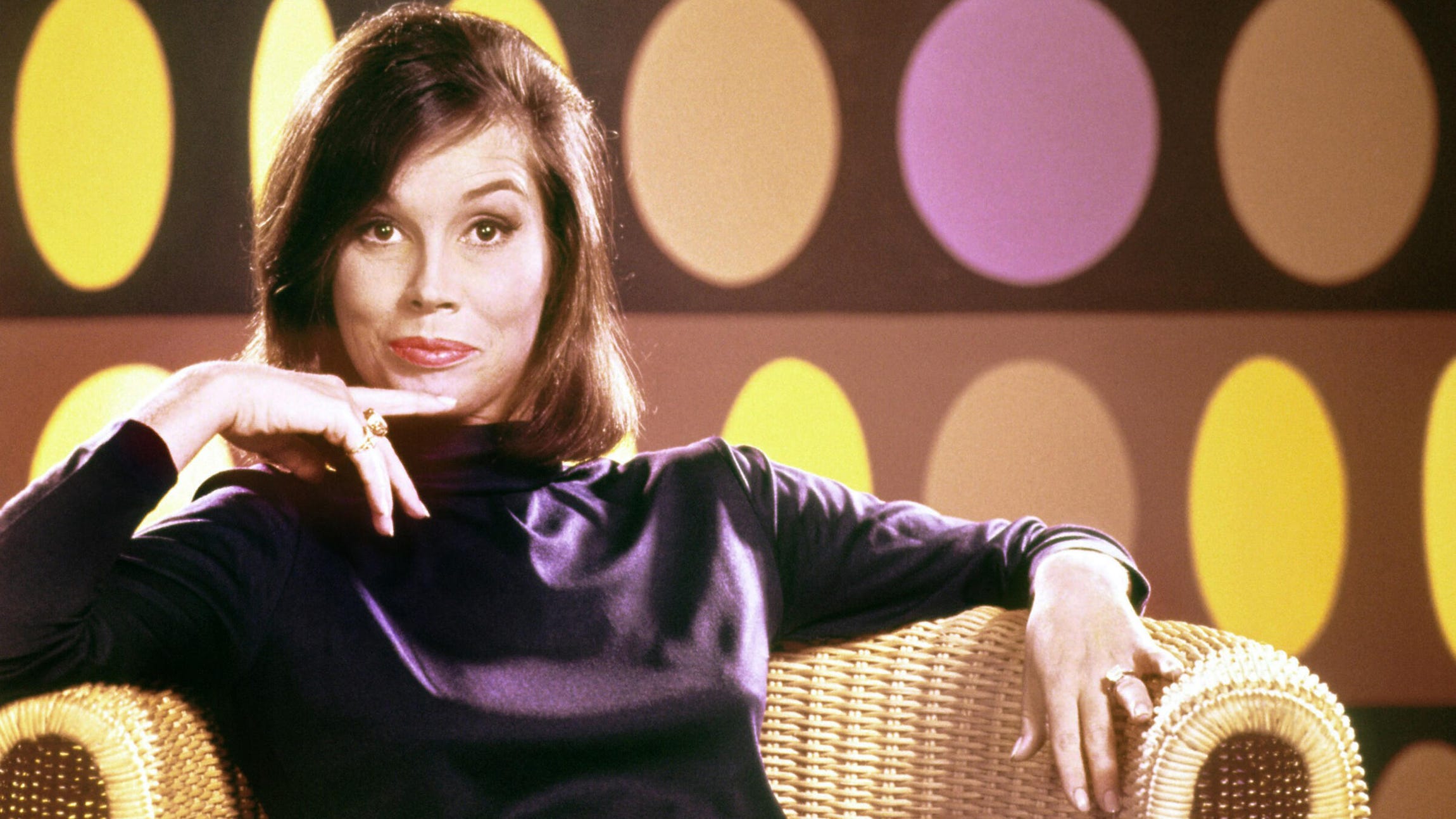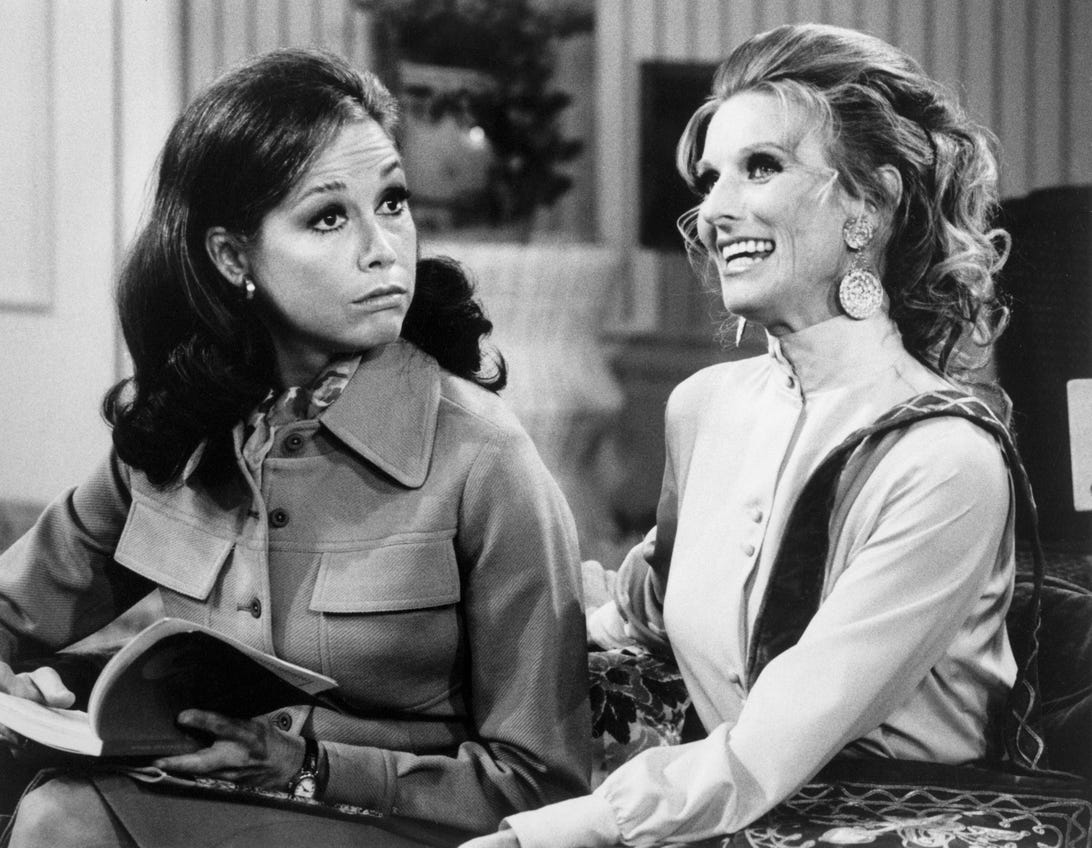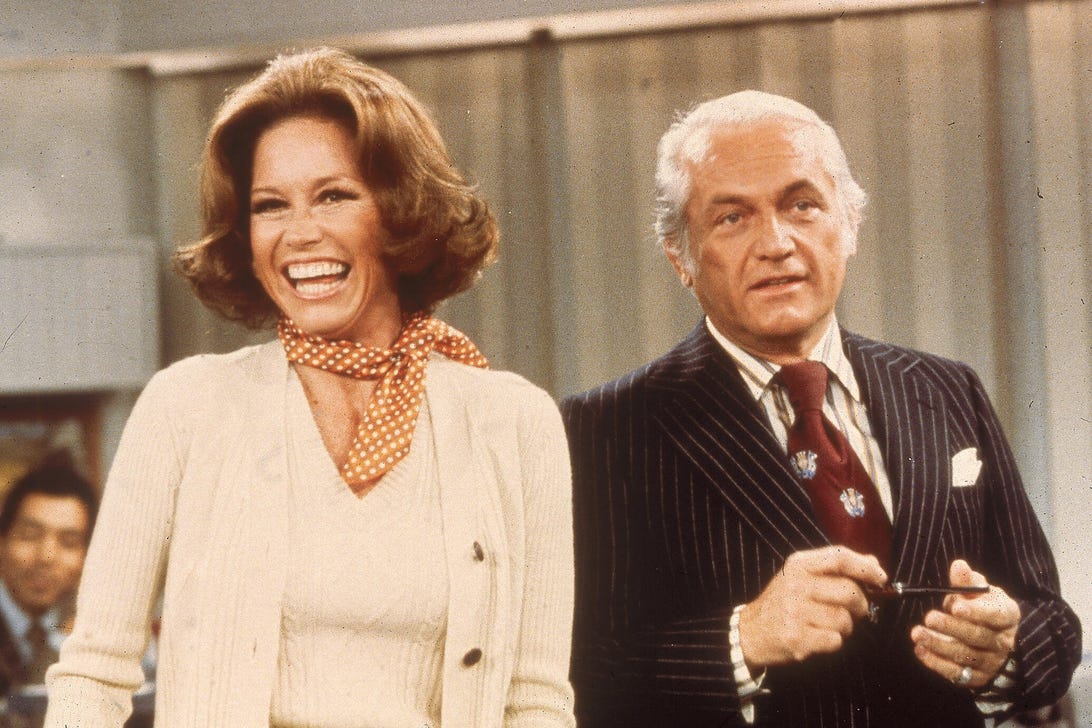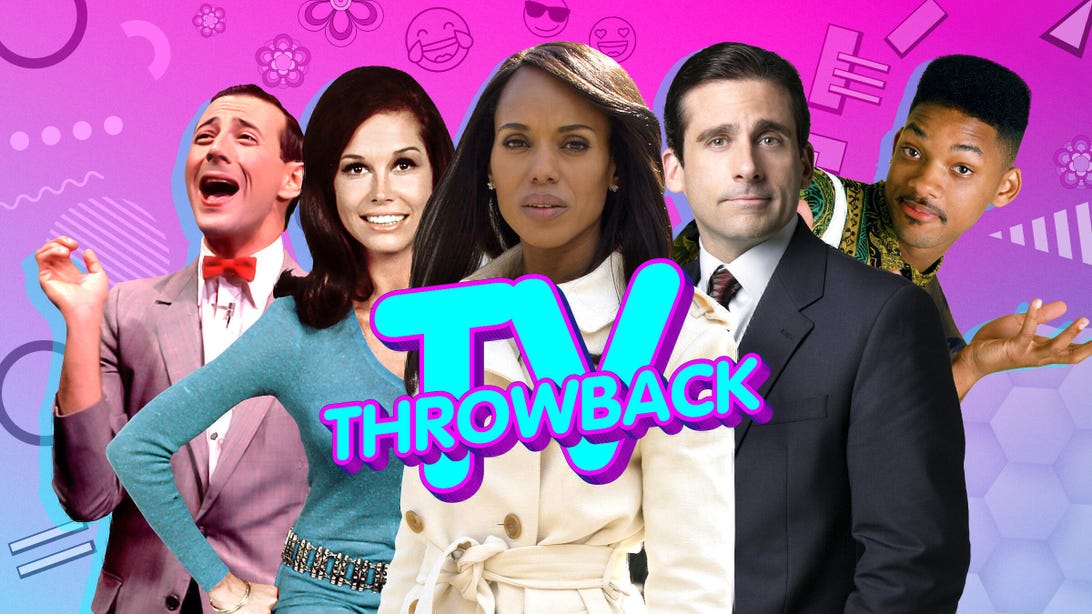
The Mary Tyler Moore Show Captures the Hard Work of Being Alone
The classic sitcom wrestles with solitude in a way that still resonates 50 years later

People on The Mary Tyler Moore Show are always asking Mary (Mary Tyler Moore) to duck out of work. Can't she go to lunch now? Can't she leave a little early? Can she leave on time, even? And like clockwork, Mary has to remind her friend or her friend's parents or that young guy she's dating that no, actually, she can't just leave her job whenever she feels like it. She's busy! This is one of the things I love about the series: It doesn't ignore hard work.
Everything feels like hard work right now, so it's a good time to rewatch The Mary Tyler Moore Show, which premiered on CBS 50 years ago in the fall of 1970 and ran until 1977. In the early days of the pandemic, I began cycling through episodes on Saturday mornings, kicking off the weekend by returning to a version of reality where the bell-bottoms come in every color and people are still allowed to hug each other. (I find that the hugging stings less when everyone is dressed so fabulously.) On one level, I don't think the reasons behind my rewatch are all that deep: It's always a good time to watch The Mary Tyler Moore Show because it's a great show, still fresh and laugh-out-loud funny after all these years. But I've also felt the series resonating, in a subtle kind of way, with the isolation that marks so many of our lives now, even in a time of collective action. It spends more time getting comfortable with solitude than most other traditional sitcoms do. In order to make it on your own, you have to be OK with being on your own.
https://www.tvguide.com/news/tv-throwback-best-shows-to-rewatch/">TV Throwback: The Best Shows to Rewatch Right Now
Mary Richards, with her dreamy bachelorette pad and her cool but stressful job as an associate producer at a low-rated Minneapolis news station, is a fantasy of imperfect independence. There's never a doubt that, in the words of the theme song, she's "gonna make it after all," but she also has to stay late at the office, get passed over for promotions, deal with hovering parents, go on dates that go nowhere, and watch her best friends move away. All of these markers of adulthood are treated frankly. Mary isn't a Liz Lemon type, a sitcom caricature of a woman who's good at her job but disastrous at everything else. (Mary is only disastrous at hosting parties.) Mostly, she's capable but still learning. One of the most refreshing things about The Mary Tyler Moore Show is how likable and funny and interesting it finds its main character just for being a young woman who's doing the best she can.

Mary Tyler Moore and Cloris Leachman, The Mary Tyler Moore Show
The Mary Tyler Moore ShowI'm soothed by this show's affectionate mockery of people who act like they have it all figured out. The longest-running punchline on The Mary Tyler Moore Show is empty-headed newsman Ted Baxter (Ted Knight), but he's not the only target of its satire who's held up too well over the past 50 years. Twice in the past few months (listen, I'm coping) I've watched the Season 4 premiere, an all-time great half-hour that introduces Betty White's Sue Ann Nivens, the "Happy Homemaker" who masks her ruthlessness behind a pasted-on smile and a barrage of household cleaning tips. If she were on TV now, Sue Ann would be a spot-on spoof of the sourdough-starter-on-Instagram crowd. When Mary's landlady, Phyllis (Cloris Leachman), confronts Sue Ann about her affair with Phyllis' husband, Sue Ann is more concerned with her soufflé.
The episode is so good because it sets up a chess game between three very different, competent women with their own flaws. Sue Ann is a backbiter with an iron grip on her perfect image; Phyllis is an art lover who turns up her nose at "traditional" homemaking; and Mary, who has such a hard time saying no to her friends, gets pulled into mediating their feud when all she wants is to get back to work. The Mary Tyler Moore Show's lineup of funny female characters — two of whom, Phyllis and Rhoda (Valerie Harper), got their own spin-offs — would be impressive if the show aired now. In the '70s, it was groundbreaking.
https://www.tvguide.com/news/1970s-sitcoms-influence/">Your Favorite Comedies Owe a Lot to These 1970s Sitcoms
More than anything, this is where The Mary Tyler Moore Show finds parity: Women and men are given equal latitude to be contradictory. (This is, to be clear, a parity that plays out almost entirely among white characters, although the show does have some fun subverting expectations with John Amos' Gordy, a weatherman Phyllis keeps mistaking for a sportscaster.) In the pilot, Mary meets with gruff news producer Lou Grant (Ed Asner) about a secretarial position and gets hired as his associate, a better title with more responsibilities and less pay. (Journalism! The jokes write themselves.) "You've got spunk," Lou famously tells Mary when he offers her the job. "I hate spunk." But later he'll tell Mary that he actually hired her because she bumped into a desk and apologized to it. Mary has backbone, but she's always fighting the instinct to be a pushover, and that tension is what makes her so compelling.

Mary Tyler Moore and Ted Knight, The Mary Tyler Moore Show
CBSMary Richards more than earns her legacy as an iconic second-wave feminist character, but she's never expected to be a perfect symbol of empowerment in the workplace. When Lou gets promoted in Season 3 and gets to pick his replacement, Mary tries to take herself out of the running — not just because she doesn't want the gig but because she says she doesn't know if being head of a newsroom is a "woman's job." ("Mary, it's your duty as a woman to take whatever you can get, whether you want it or not," Phyllis insists, prompting Rhoda to quip, "I've met a lot of guys who felt that way.") Still, Mary gets angry when Lou tells her that she didn't get the job because she's a woman. A few episodes earlier, in the Season 3 premiere, Mary learns that she makes less money in her role than the man who held it before her, and while she manages to get a raise, she doesn't quite get equal pay. As close as she is with her coworkers, there's still a sense that she's on her own a lot in the office, without other women in authority positions to back her up.
https://www.tvguide.com/news/best-shows-70s-watch-right-now/">The Best '70s Shows to Watch Right Now
It isn't that Mary is lonely; she unequivocally isn't. It's just that she often has to stand alone. That's the nature of going where no one else has. Mary Richards, on screen, spends her 30s opening doors for herself; Mary Richards, the character, opened doors for women on television. She's a career-minded single woman who sometimes doesn't come home from dates until the next morning and casually mentions being on the pill. If female characters like that are common now, Mary gets credit for helping to pave the way. Watching The Mary Tyler Moore Show break ground is comforting because it's a reminder that the world does move forward, even when it feels stuck in place, and that one woman can help push it along.
For Mary, progress is freeing even when it's not easy. I keep thinking about an exchange in the pilot when she cuts ties with her noncommittal ex-fiancé. "Take care of yourself," he tells her. Mary replies, thrillingly, "I think I just did." That's the whole simple, radical idea of The Mary Tyler Moore Show: Mary Richards will be taking care of herself on her own. Sometimes that's the only way.
The Mary Tyler Moore Show is available on Hulu. Check out more great '70s series to watch here.
Looking for more shows to stream? Check out TV Guide's TV Throwback, recommending the best shows to rewatch — or to discover for the first time — from 1970 through the present day.

